2025 IOCAS International Training Course on Subsurface Mooring Observations, hosted by the Institute of Oceanology of the Chinese Academy of Sciences (IOCAS) is successfully concluded on November 2 in Qingdao, China. 24 trainees from 20 countries/regions including Argentina, Brazil, Peru, Bangladesh, France, Greece, Pakistan, Singapore, Malaysia, Tanzania, Indonesia, as well as renowned experts and early career scientists attend the training.
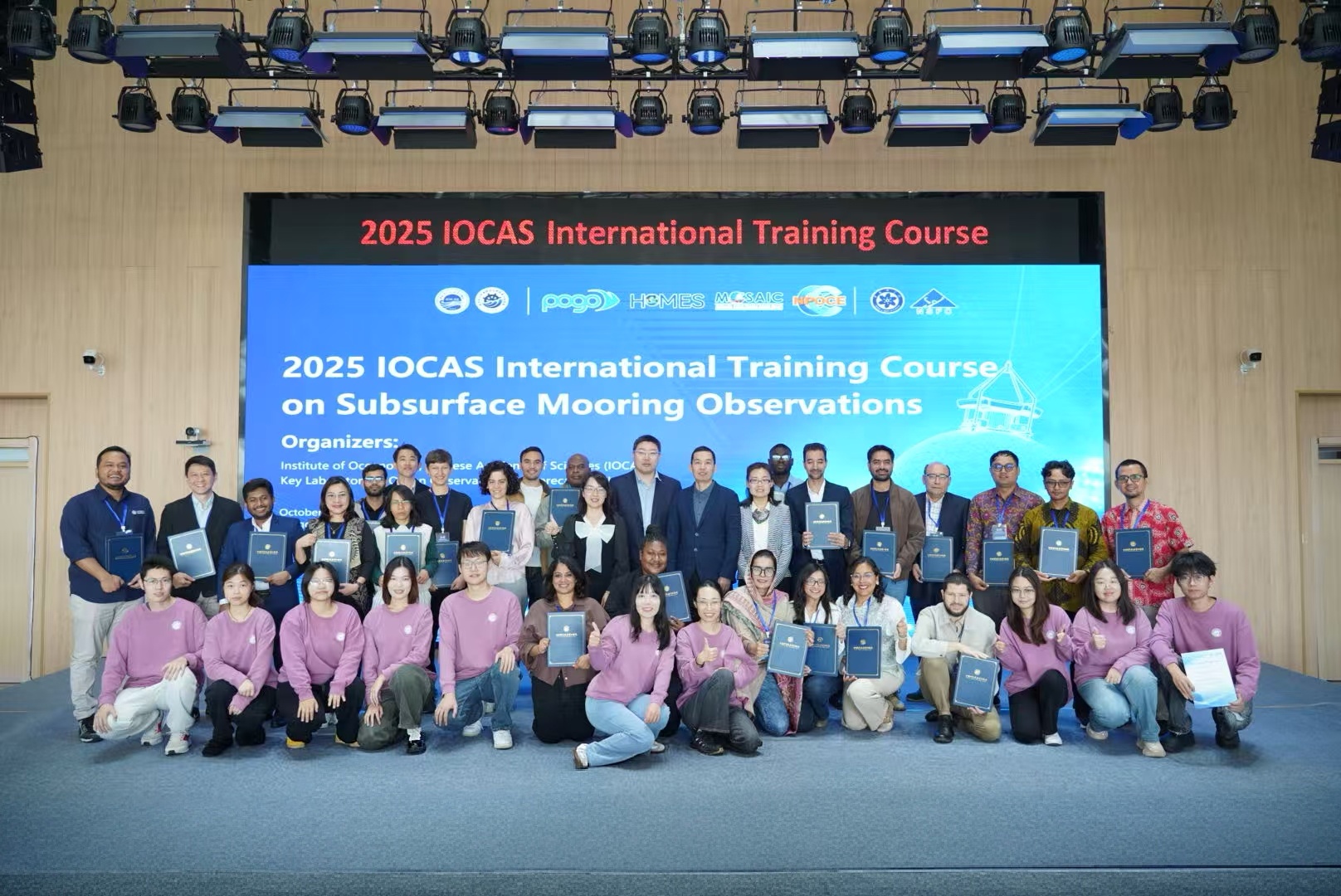
Group Photo
Prof. Jianing Wang, Assistant Director of IOCAS, delivers closing remark. Prof. Pin Huan, Assistant Director of IOCAS, presents certificates to trainees. Dr. Yanwei Li, head of International Cooperation Office, chairs the closing ceremony. The participants enthusiastically share their training gains and experiences.
On behalf of IOCAS, Prof. Wang warmly congratulates the trainees on successfully completing the training course. He points out that this training systematically improved core skills of trainees in the field of ocean observation, deepened international exchanges and cooperation among peers, and effectively promoted technology sharing and collaborative research in global ocean observation. IOCAS is willing to share its successful experience in ocean observation, and contribute to global ocean observation research.
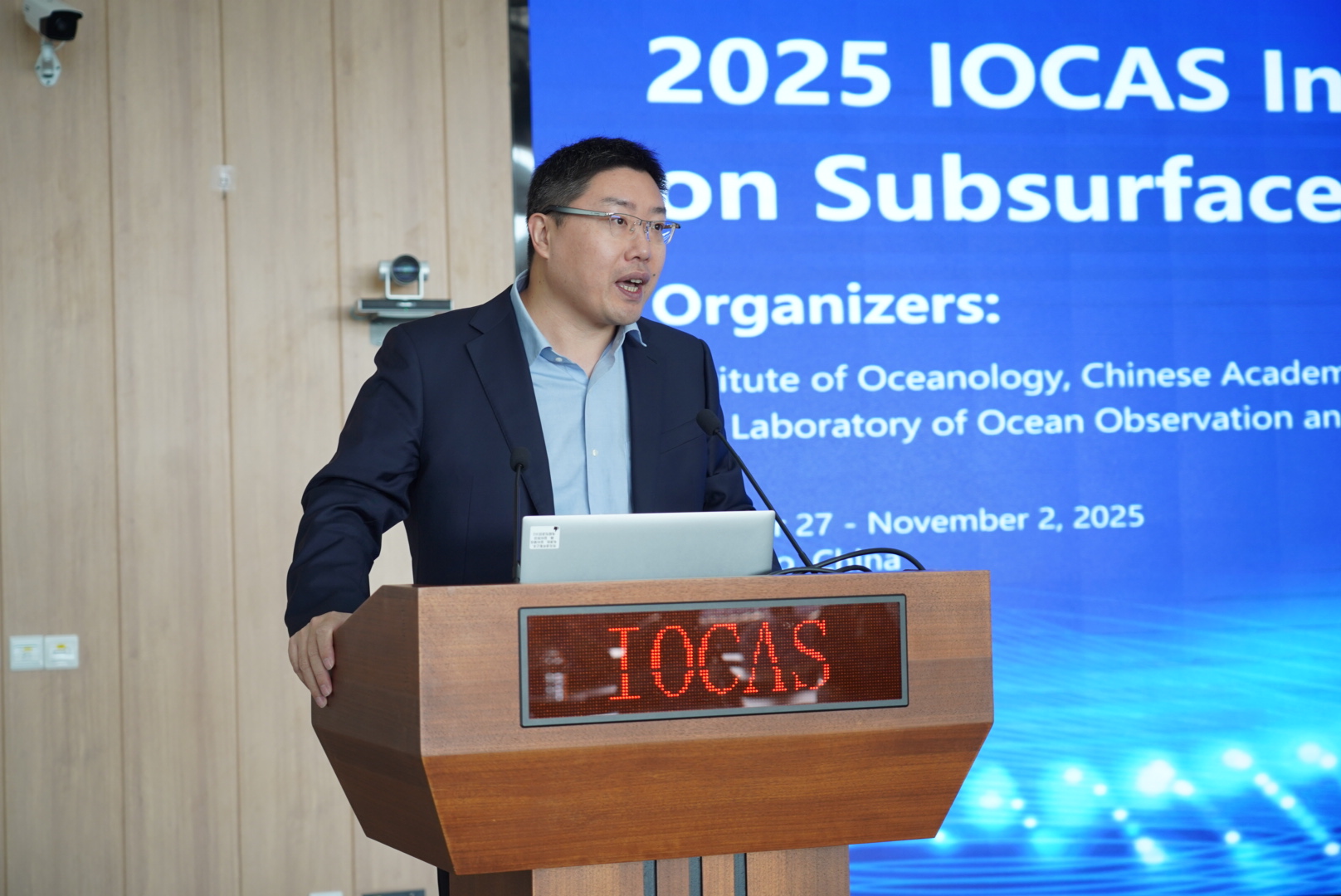
Prof. Wang delivers closing remark
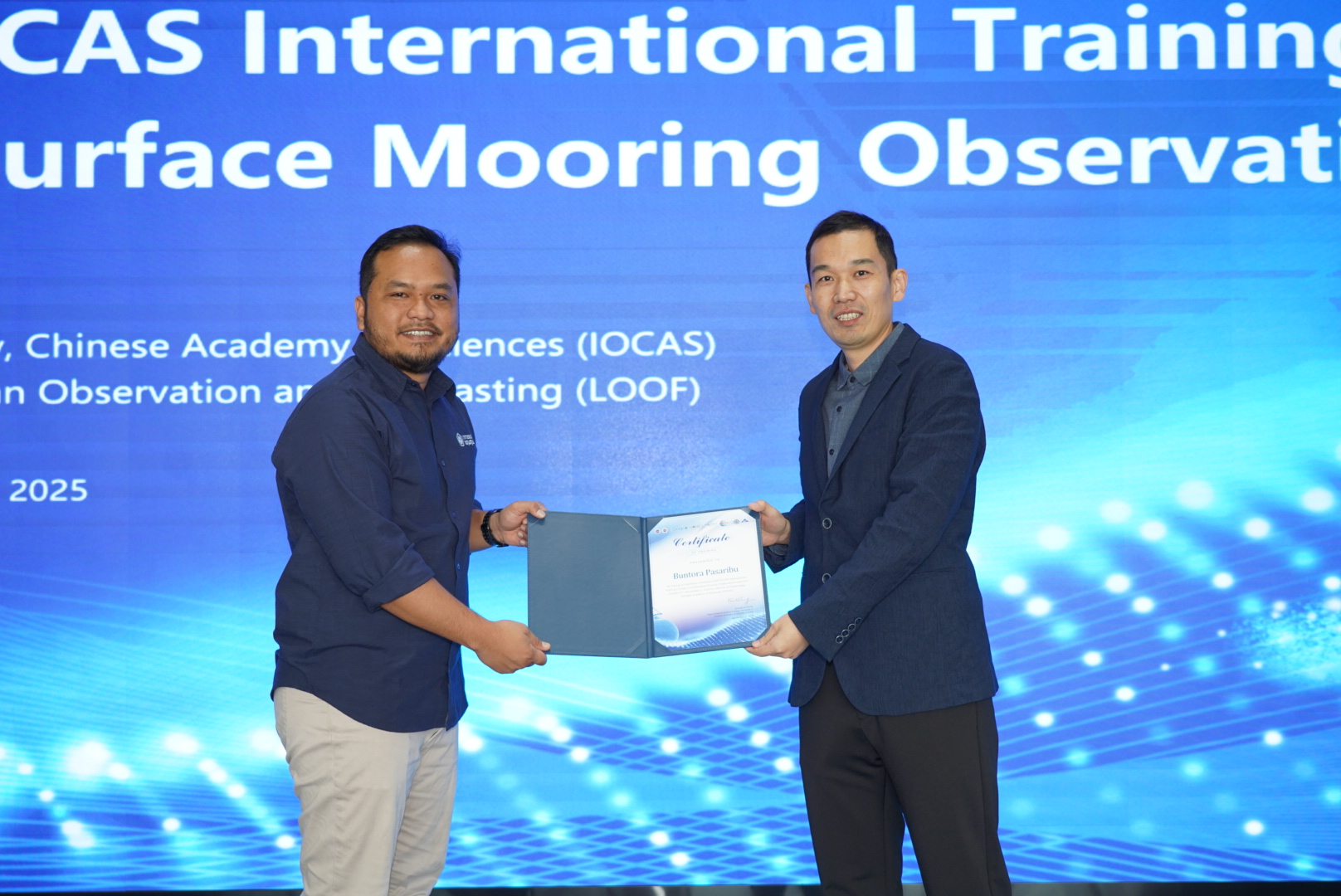
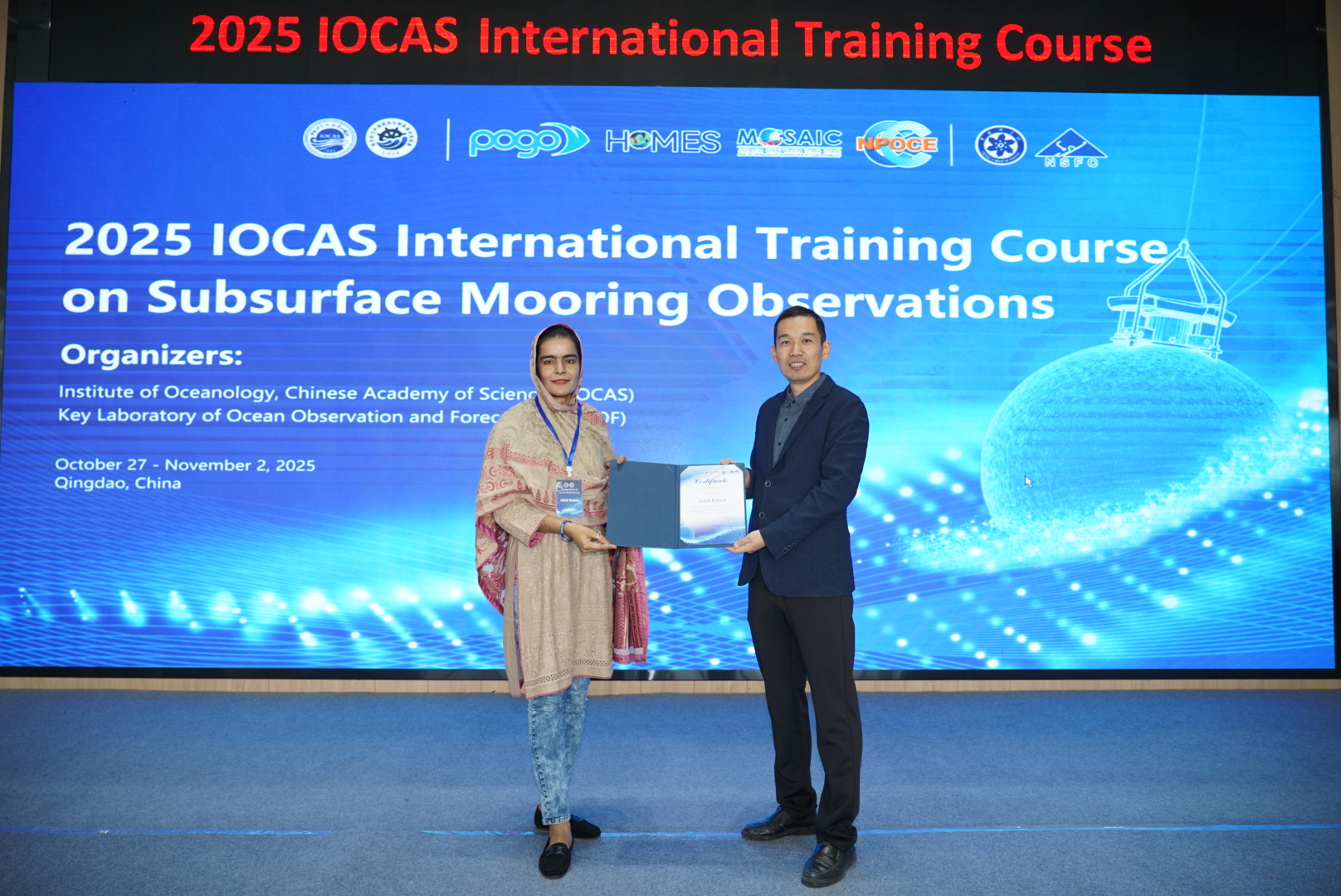
Prof. Huan presents certificates to trainees
The training lasts for one week, trainees gain a deep understanding of the basic theories and frontier achievements of marine observation, learn the latest design, deployment, and recovery technologies of subsurface moorings, as well as the processing and analysis methods of subsurface mooring data and the application of in-situ observation in ocean circulation, climate change, marine organism and geochemistry. Besides the above training lectures, IOCAS also organizes operational practice for all trainees on the deployment and recovery of subsurface moorings conducted on a scientific research vessel in the surrounding waters of Qingdao.
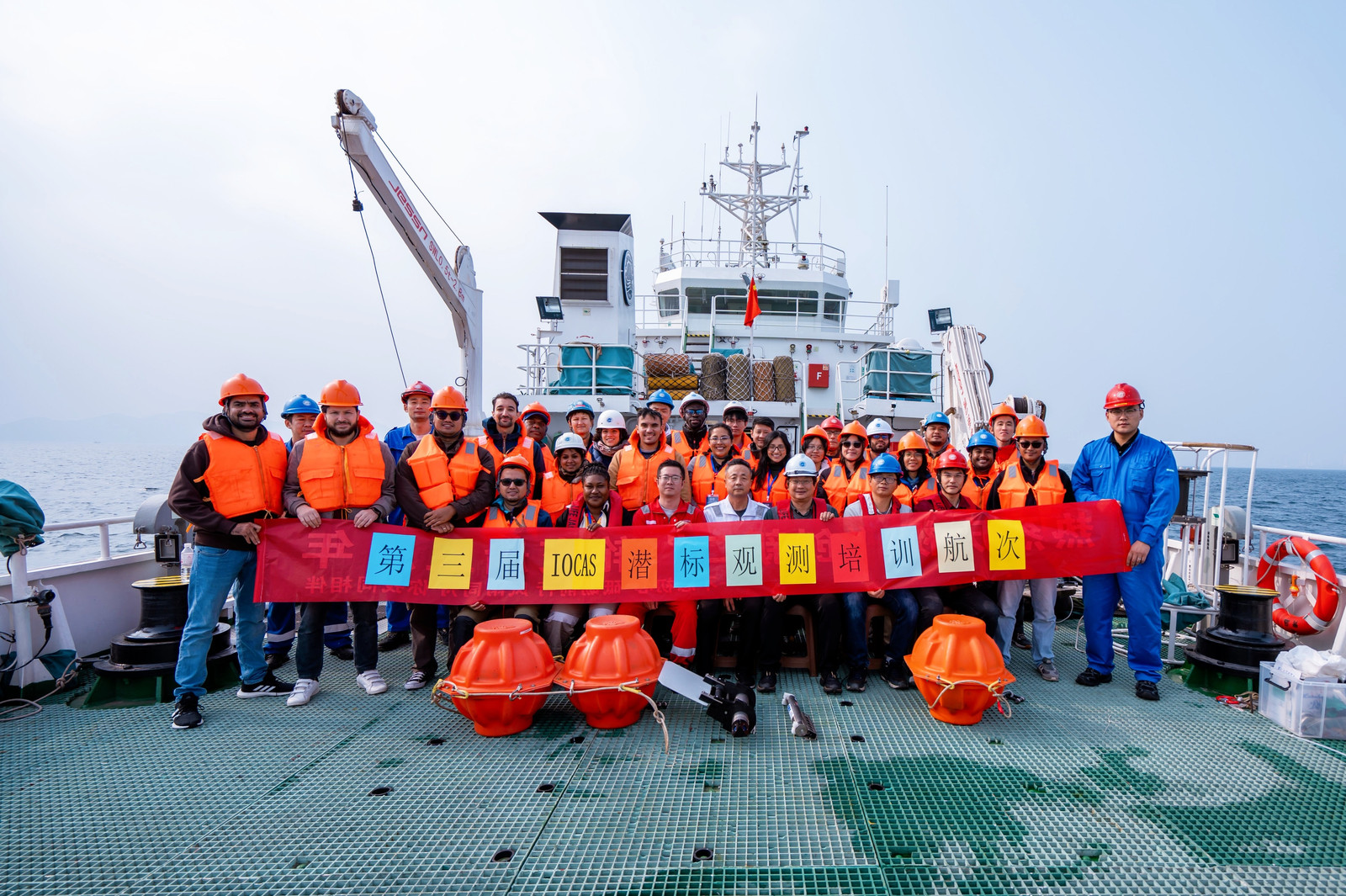
Trainees take scientific research vessel to conduct on-site training on the deployment and recovery of subsurface mooring
Trainees all provide positive feedback on this training.
"I have gained significant experience in data acquisition and processing through this training," says Buntora Pasaribu, an assistant professor from Indonesia. "I will apply these valuable professional knowledge and advanced technologies to marine environmental monitoring and research work in Indonesia."
"This is my first time in China, and this training has opened up new ideas and technical perspectives for me in model construction and software application," says Ounacer Faycal, a doctoral student from Morocco. "I plan to apply modeling parameters and remote sensing technology in my future research."
"As a physical oceanographer with extensive experience in marine exploration, the training content highly aligns with my research field," says Anabel Gammaru, early career scientist from Royal Belgian Institute of Natural Sciences. "This training not only deepened my understanding of oceanography theory, but also significantly improved my practical abilities in operating ocean observation equipment, data processing and analysis."
Natalie del Carmen Bravo Senmache, a researcher at Peruvian Institute of Oceanology (Instituto del Mar del Peru), expresses a strong expectation for future training courses. "This training has established a top-level international exchange platform, and I highly value the opportunity to communicate with colleagues from various countries. I am also willing to share the cutting-edge concepts, practical technologies, and scientific progress of this training with my Peruvian peers."
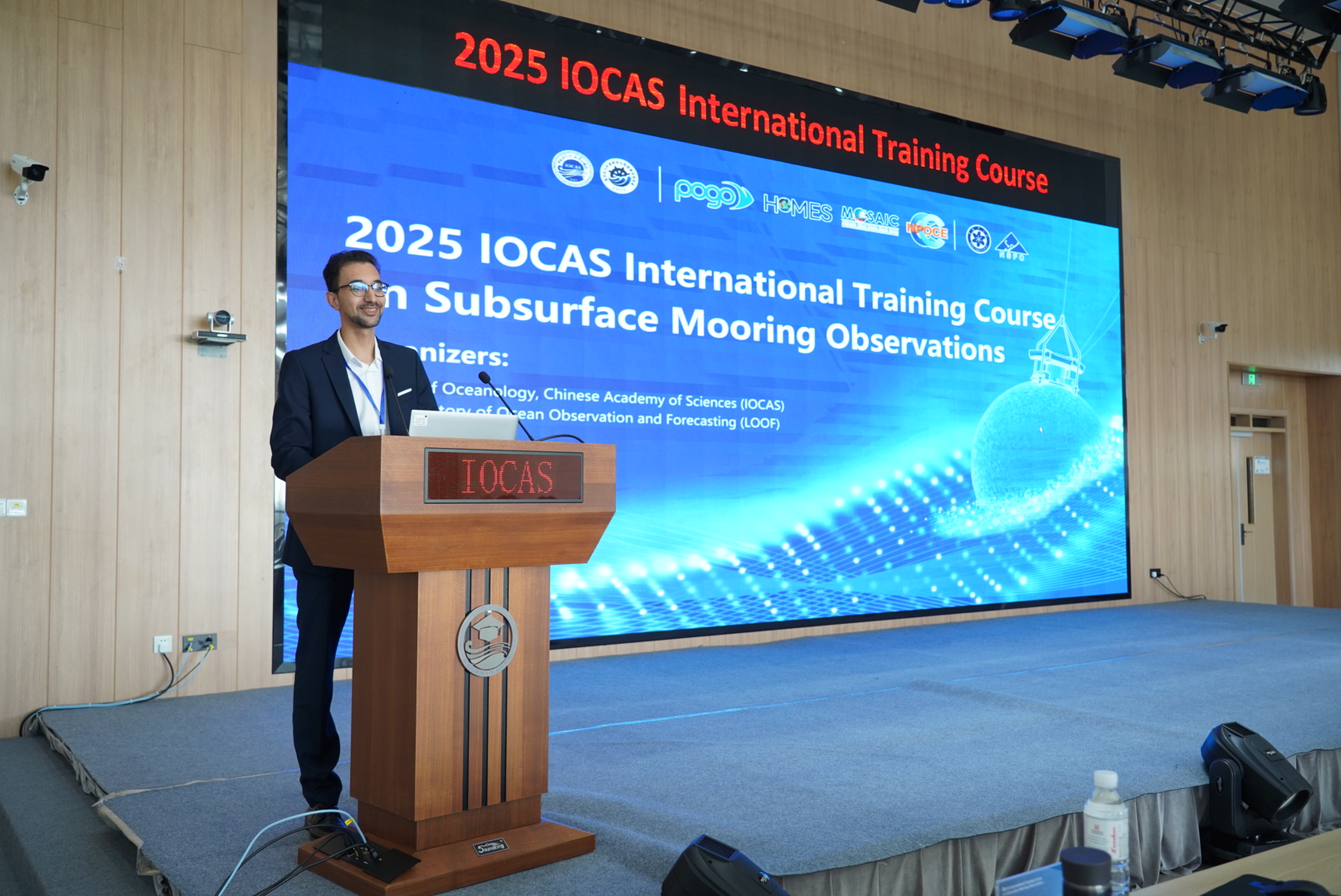
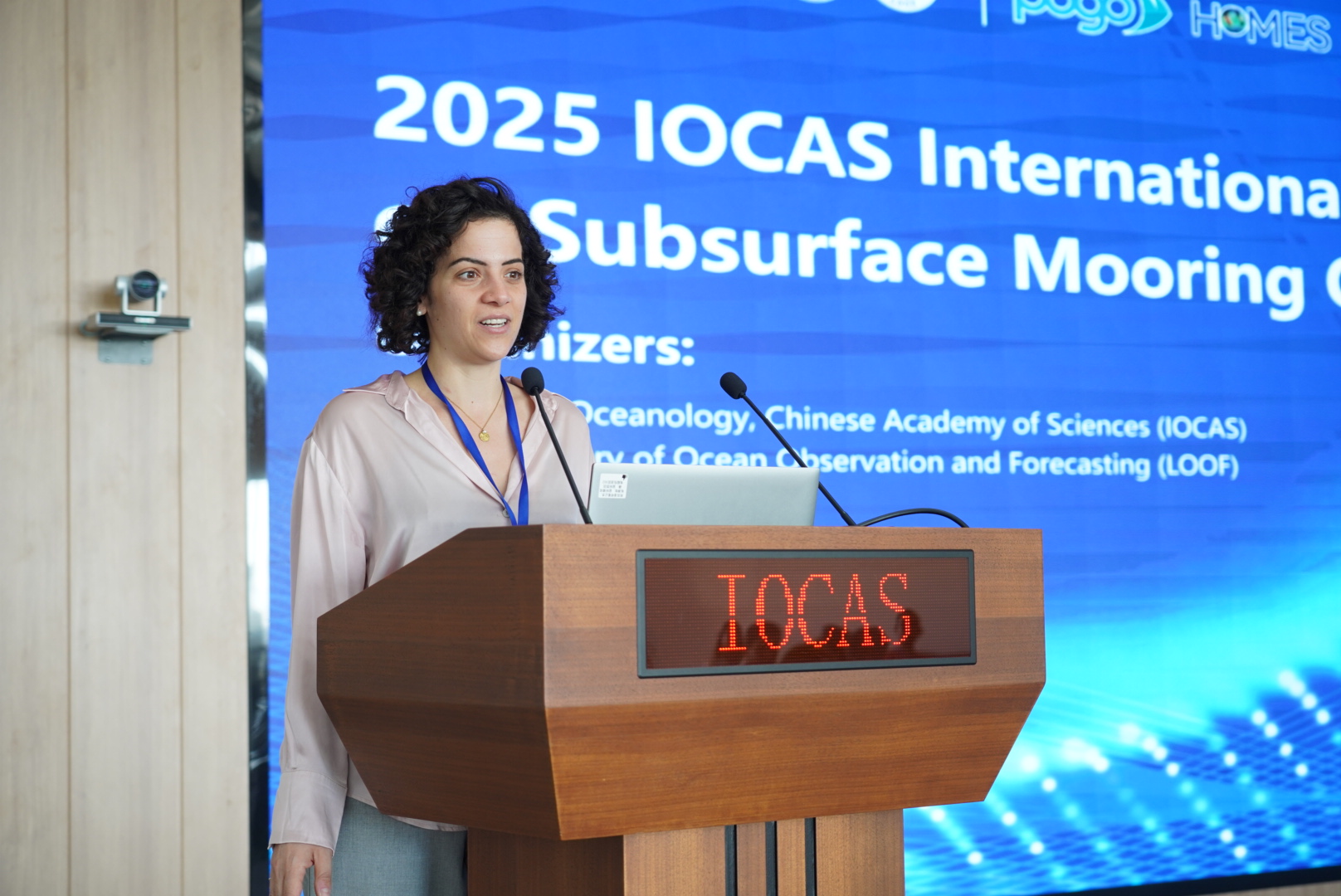
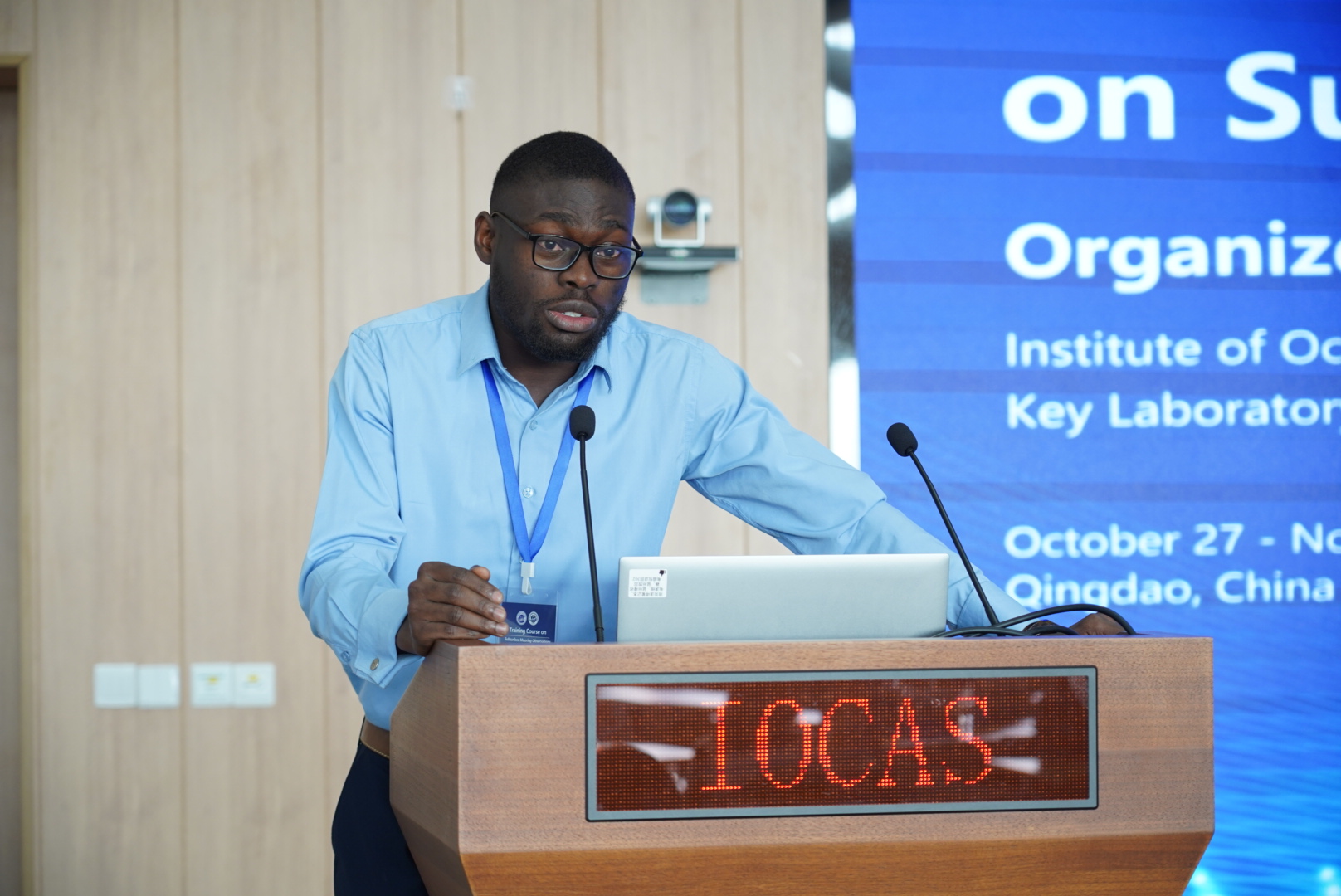
Trainees share their achievements and thoughts on this training
IOCAS has successfully held two training courses on subsurface mooring observations in 2023 and 2024. By sharing accumulated observation experience and technical standards in the Western Pacific, this series of training injects new momentum into the international community's joint efforts to address the challenges of global climate change, promote the development of marine science, and achieve sustainable development goals for the ocean. It is also a valuable practice for China to play an active role and demonstrate its responsibility in international ocean governance.

(Editor: ZHANG Yiyi)

